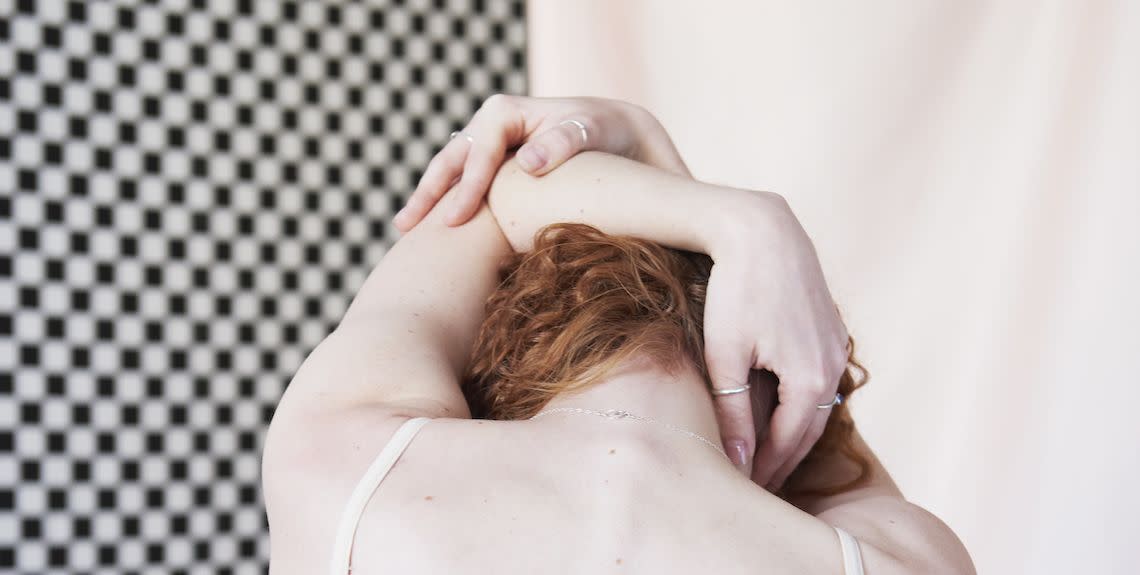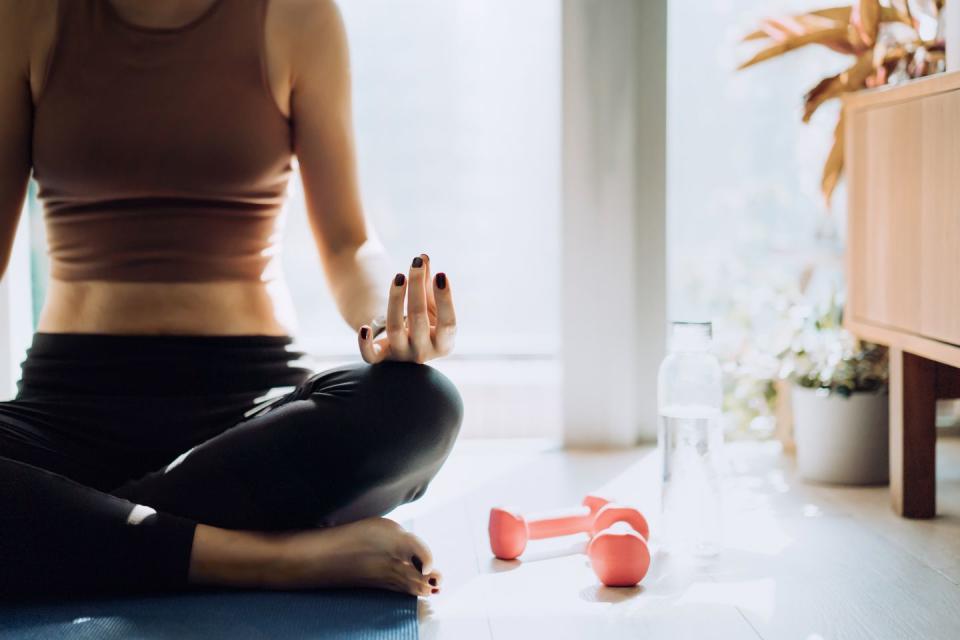‘I’m Terrified Of The Freedom I’ll Lose When Lockdown Restrictions Lift’

Every morning at 6.03am I wave and mouth ‘morning’ to a stranger across the road as I walk to the gym. Other than the fact she ties her flaxen blonde hair into a ponytail and has a proclivity for fuchsia-coloured lycra, I know nothing about this woman. Yet, this momentary interaction has made her important to me - one of the few people I speak to in person in my day. But the timeline on our ‘friendship’ is about to expire, as Covid-19 restrictions lift.
At the beginning of 2020, 'freedom' became the buzzword du jour, as daily liberties slowly suffocated under the pandemic’s tight clutch. We stayed at home, where possible, converting bedrooms and shelving units into makeshift offices. We avoided meeting more than two people in public, swapping brunches and gym classes for Zoom parties and online workouts. Some even gave up on seeking love and sex, for fear of endangering themselves or their families.

As of Monday, July 19, however, that’s all set to change. The rule of six will be scrapped, face masks will no longer be legally required, and social distancing rules will be tossed away like a half-used bottle of antibac. For many people this long-awaited ‘Freedom Day’ will sound the klaxon for a summer of enjoying everything we've been missing out on. After 16 months of whiplash-inducing on-off restrictions, we’ll be able to make anticipatory-eyes across the bar with someone and jostle against other revellers inside a gloopy-floored nightclub, coated in a sheen of sweat and exhilaration.
But while this lockdown watershed is something to be celebrated (albeit cautiously, given Covid-19 cases are rising exponentially), everyone is forgetting the immeasurable privileges we now stand to lose. Last week, Prime Minister Boris Johnson said if we were to fail in reopening society by July 19 ‘we must ask ourselves – when will we be able to return to normal?’ For me, however, the fear of going back to 'normal' is worse than the uncertainty before lockdown. Because for the first time in what feels like my whole adulthood, I’ve been able to make my personal life - and my wellbeing - a priority.

Far from feeling imprisoned in our homes, remote working has given many of us a sense of autonomy. After a teething phase of learning Zoom etiquette and swapping the sofa slump for an ergonomic chair, we eased into the groove of flexible and judgement-free employment. We’ve had the freedom to choose extra stretchy leggings over suiting for meetings, swap mascara for moisturiser and water cooler chatter for the familiar voices of TV characters or, better yet, restorative silence.
From soaking up the sun in the garden – laptop perched atop goldening thighs – to conducting Microsoft Teams calls on mid-afternoon dog walks, we’ve created our own recipe for how to work best, rather than adhering to the out-dated and erroneous notion that the four walls and strip-lighting of an office improve productivity.

A commute-free morning means I can attend a HIIT class, shower and eat before opening Outlook. Rejuvenated and socialised before my morning coffee, this has been an immeasurable boon in improving my mental and physical wellbeing. And it’s one I dread to sacrifice when my company requests a return to the office.
Colleagues have cherished morning feeds with young babies and un-tricky school pick-ups, instead of using precious downtime with family to commute, pump milk and organise pricey childcare. Friends have decided to relocate entirely, choosing to move to cities with lower living costs, rent and proximity to family members, while keeping their high-flying careers. Giving up the London living wage and bustling restaurant scene after Covid-19 has been but a small price to pay for a real life/work balance. Small as these luxuries may seem, they’ve become lifelines, helping society set its own rhythm for a change.

There's also the issue that Covid-19 remains an omnipresent threat, and one that not everyone takes seriously. Unfortunately, the last year has encouraged some to raise their pitchforks in the name of personal prerogative. They’ve selfishly ignored face mask advice and broken quarantine. And behaviour is due only to get worse, as restrictions dissolve and the onus falls to us to keep each other safe. It's not unreasonable to feel anxious about that.
Like everyone, I dream of a time when I can sip Sancerre on a balcony in the south of France, dance at a music festival and hug a stranger at a wedding. But as the day looms closer, there's a pit in my stomach, already mourning my morning autonomy, fearing for my loss of balance, dreading the stifling tube journeys and saying goodbye to seeing my garden in daylight hours. Because lockdown hasn't just kept the virus at bay (and objectionable people at arms length). It's quietly handed us back choices and freedoms that we didn't know we wanted, but really, really needed.
You Might Also Like


